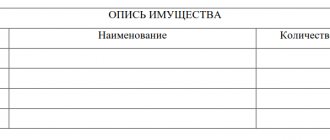1. The tenant of a residential premises has the right, with the consent of other citizens permanently residing with him, to terminate the rental agreement at any time with a written warning to the landlord three months in advance.
2. A residential lease agreement may be terminated in court at the request of the landlord in the following cases:
failure by the tenant to pay for the residential premises for six months, unless a longer period is established by the contract, and in case of short-term rental, in case of failure to pay the payment more than twice after the expiration of the payment period established by the contract;
destruction or damage to residential premises by the tenant or other citizens for whose actions he is responsible.
By a court decision, the tenant may be given a period of no more than a year to eliminate the violations that served as the basis for terminating the rental agreement. If, within the period determined by the court, the tenant does not eliminate the violations or does not take all necessary measures to eliminate them, the court, upon repeated application by the landlord, makes a decision to terminate the rental agreement. In this case, at the request of the employer, the court in the decision to terminate the contract may postpone the execution of the decision for a period of no more than a year.
3. A residential lease agreement may be terminated in court at the request of any of the parties to the agreement:
if the premises cease to be suitable for permanent residence, as well as in the event of an emergency;
in other cases provided for by housing legislation.
4. If the tenant of a residential premises or other citizens for whose actions he is responsible use the residential premises for other purposes or systematically violate the rights and interests of neighbors, the landlord may warn the tenant about the need to eliminate the violation.
If the tenant or other citizens for whose actions he is responsible continue to use the residential premises for other purposes after warning or violate the rights and interests of neighbors, the landlord has the right to terminate the rental agreement in court. In this case, the rules provided for in paragraph four of paragraph 2 of this article apply.
- Article 686. Replacement of a tenant in a residential lease agreement
- Article 688. Consequences of termination of a residential lease agreement
When can a document be terminated?
Depending on who is the initiator, the grounds for termination vary significantly. So, for what reasons can an apartment rental agreement be terminated?
IMPORTANT: In order to unilaterally terminate the contract, the landlord must go to court!
At the initiative of the lessor
According to Part 2 of Art. 687 of the Civil Code of the Russian Federation, rental housing can be terminated by the owner of the premises if the tenant commits one of the following actions:
- The tenant does not pay rent for more than six months, unless another period is established by the contract. If the rental is short-term (that is, less than a year), then it is enough not to pay the rent for two months in a row.
- The tenant himself, members of his family or someone else from the persons for whom he is responsible spoil or destroy the apartment.
In addition, according to Part 4 of Art. 83 of the Housing Code of the Russian Federation in the case of social hiring (and Part 4 of Article 687 of the Civil Code of the Russian Federation - in the case of commercial hiring (agreement)), additional grounds for termination may be:
- The employer systematically interferes with neighbors, violating their rights and interests.
- He is using the apartment for other purposes.
Finally, the landlord has the right to demand termination of the contract in cases where the housing is no longer suitable for permanent living - but the tenant also has this right.
Watch the video: How to terminate a lease agreement early
How to terminate a lease agreement early
Employer's desire
In the case where the person renting the property wants to end the relationship, everything is much simpler. Part 1 art. 687 of the Civil Code establishes that in order to terminate the contract, it is enough for him to obtain the consent of all persons living with him in the rental order - and to warn the landlord. The notice period for termination of the contract is three months , but it will not be a violation if this is done earlier.
What happens after the contract is terminated?
Indeed, what will happen after the termination of the lease agreement, why is this necessary?
Upon termination of the contract, the obligations of the parties cease (clause 2 of Article 453 of the Civil Code of the Russian Federation). That is, after termination of the contract, you no longer have to provide your apartment to the tenant/tenant; accordingly, he must vacate the premises. He, in turn, also no longer has any obligations: neither to pay rent, nor to maintain the leased property.
The contract will be considered terminated from the moment the agreement on its termination is concluded or after the state registration of such an agreement (if the contract itself was registered) (clause 3 of Article 453 of the Civil Code of the Russian Federation).
Please note that when renting residential premises (under an agreement concluded for a period of at least one year), it is not the agreement itself that is subject to registration, but the encumbrance of ownership rights arising on the basis of such an agreement. Accordingly, the termination of the rental of residential premises must also be registered (Clause 6, Article 26.1 of the Federal Law of June 21, 1997 “On State Registration of Rights to Real Estate and Transactions with It” No. 122-FZ).
If you were forced to terminate the contract by a significant violation of the terms of the contract by the other party, then you have the right to demand compensation for losses caused to you by such termination (clause 4 of Article 454 of the Civil Code of the Russian Federation).
By mutual agreement
One of the main principles of civil legislation is the principle of freedom of contract (Article 1 of the Civil Code of the Russian Federation). Among other things, it means that the parties have the right to change or terminate any contract at any time, unless the law states otherwise. And in the event that both the employer and the lessor wish to terminate the tenancy agreement, they have the right to enter into an agreement between themselves on this - and the tenancy will terminate.
The law does not determine the conditions under which the contract will be terminated in this case - they remain entirely at the discretion of the parties. Moreover, if the agreement is mutual, the parties are not obliged to be guided by any of the above grounds - their will is sufficient.
TERMINATION OF THE LEASE AGREEMENT OF NON-RESIDENTIAL PREMISES! What is IMPORTANT to know and remember about ENSUANCE!
Agreement
The mutual will to terminate the contract is formalized through an additional agreement. The only requirement that the law sets for it is that it be executed in the same form as the main contract, that is, in simple written form. Otherwise, the parties are free to write it however they wish.
However, in practice additional the agreement usually has the following structure:
- Title with reference to the main agreement.
- Place and time of imprisonment.
- Personal information of both parties, including full names, addresses, and, if desired, passport information.
- A clear and unambiguous desire to terminate the contract.
- Description of related procedures (vacation of the premises, handing over of keys, etc.).
- The procedure for repaying debts or returning overpayments (if the employer paid in advance).
- Signatures of the parties and their transcript.
ATTENTION: The given structure is for indicative purposes only. The parties have the right to indicate in the agreement other clauses that do not contradict the law.
Notice of termination of the lease agreement.
How to terminate a contract correctly?
Instructions If it becomes necessary to terminate the contract for one of the above reasons, you should prepare and send an appropriate notice of termination of the lease agreement.
This notice must be in writing. It should be handed over to the employer in person or by mail with acknowledgment of delivery.
Like all documents, the letter of termination of the lease agreement must reflect the following information: • Name of the document; • Details of the party sending the notification and the recipient of the notification; • Details of the agreement to which this notification relates; • The grounds on which this notice is given; • Contents of the requirement expressed in the notification.
Notices of termination of the lease agreement can be found at this link
How can an employer terminate a relationship?
If the employer wishes to terminate the employment relationship, he must act according to the following algorithm.
Notification
The law specifies that the landlord must be warned of the upcoming termination of the contract. The period for this warning is three months or more. If it is necessary to terminate the contract earlier, then it can only be terminated by mutual agreement in the manner described above.
Drawing up a deed and handing over the keys
The next step should be to draw up an acceptance certificate. It is prepared in any form, the main thing is that it indicates what condition the apartment is in after it is returned to the landlord. Without this document, it is quite possible that after the end of the contractual relationship, the owner of the apartment will demand compensation for damage and the tenant will not be able to prove that there was no damage.
The act itself is drawn up with approximately the following structure:
- Name.
- Date and place of compilation.
- Personal data of the parties.
- A description of the condition of the apartment - or simply an indication that the landlord has no claims against the tenant.
- Signatures with transcript.
The act is drawn up in two copies for each party. If desired, the parties can include in it the signatures of witnesses who will confirm that the housing is in exactly the condition as described.
The last step is handing over the keys. In the simplest case, the employer simply passes them from hand to hand.
IMPORTANT: If there is a suspicion that claims are possible in the future, it is better to formalize the transfer of keys using approximately the same act - or at least with the help of a receipt. In it, the renter must indicate that he received all the keys and in good condition.
Consequences of termination
Note! The main consequence of termination of tenancy is the eviction of the tenant and his family members from the occupied apartment (Article 688 of the Civil Code of the Russian Federation).
Forced eviction is an extreme measure that the court resorts to only after fully examining all the circumstances and reasons for the violations committed by the tenant.
In paragraph 38 of the resolution of the Plenum of the Supreme Court of the Russian Federation “On some issues that have arisen in judicial practice when applying the Housing Code of the Russian Federation” dated July 2, 2009 No. 14, explanations are given on the grounds for termination of social rent. In particular, the Plenum explains:
- non-payment of fees must occur for 6 consecutive months;
- courts should assess the validity of the reasons why the fee was not paid.
It is noteworthy that these clarifications are also applied by the courts in relation to commercial hiring (see, for example, the decision of the Leninsky District Court of Cheboksary, Chuvash Republic dated May 16, 2018 in case No. 2-1693/2018).
What should the owner do?
If the apartment owner himself wants to end the rental relationship, he has two main options.
Without trial
If the lessor in the contract has provided for the possibility of unilateral termination on his own initiative, then by virtue of Art. 450.1 of the Civil Code of the Russian Federation, such a condition will be valid. In this situation, the landlord, within the period established by the contract, sends a notice of refusal to fulfill obligations under the rental agreement, has the right to demand eviction from the tenant, and also, in self-defense, the right (Article 12 of the Civil Code of the Russian Federation) to change the keys in the apartment.
In addition, termination of the contract is allowed at the initiative of the lessor, but with the consent of the lessee. Exactly how this is done is described above.
Forced eviction
If it is not possible to reach an amicable agreement, the landlord can file a lawsuit in court and demand not only termination of the contract, but also forced eviction. In addition to the grounds described above, provided for by the Civil Code of the Russian Federation, you can go to court if the contract stipulates the landlord’s right to early termination.
The procedure for termination through court will be as follows:
- The lessor is preparing a statement of claim in accordance with Art. 131 of the Code of Civil Procedure of the Russian Federation and pays the state duty.
- The claim and the documents attached to it under Art. 132 of the Code of Civil Procedure of the Russian Federation (receipt for payment of the duty, copies of the contract, other evidence) are sent to the court by mail or transferred to the court office in person.
- The claim is accepted for consideration and a hearing time is set.
- The judge agrees with the plaintiff and satisfies his demands.
- After the decision has entered into force, the plaintiff has the right to contact the bailiffs and demand that they organize the forced eviction of the tenant in the prescribed manner.
Let's sum it up
How to terminate a contract correctly?
Instructions to terminate a lease agreement than to terminate a rental agreement. This is explained by the fact that under a lease agreement an apartment is rented to a legal entity, and under a lease agreement - to an individual. And in this case, the legislator was guided by the goal of preventing the unlawful eviction of citizens from rented apartments.
We remind you once again: before concluding an agreement, evaluate under what conditions it can be terminated if necessary, so as not to find yourself helpless in the face of a cunning tenant or simply be left without payment with an idle apartment.
List of required documents
The statement of claim and accompanying documents must meet the requirements of current legislation. The application must contain the following information:
- Information about the court, the plaintiff and the defendant.
- Circumstances of the case.
- The essence of the claims.
- Legislation regulating this issue.
- The plaintiff's claim against the defendant.
- Appendix indicating the list of attached evidence.
The following documents must be attached to the claim:
- original lease agreement;
- documents confirming the plaintiff’s attempts to resolve the issue pre-trial (notification or claim with a mark of receipt by the other party);
- evidence of violations of the contract committed by the plaintiff;
- expert opinion on the assessment of harm caused;
- an extract from the house register about debts for utility payments;
- bank statement confirming the absence of money transfers from the tenant for renting the apartment.







